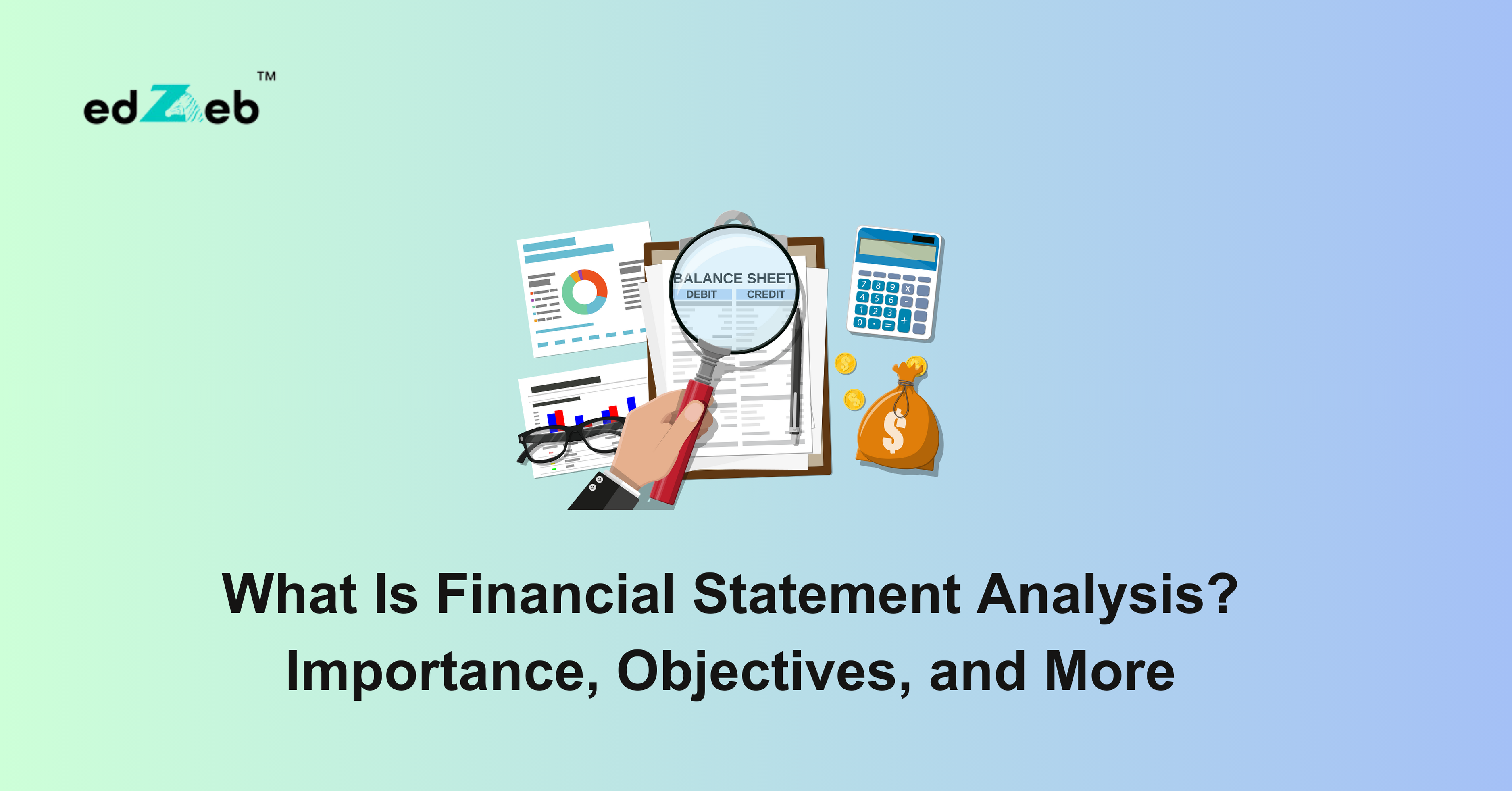
Accounting standards play a critical role in maintaining transparency and consistency in financial reporting. Both IFRS and GAAP are major frameworks guiding companies across the globe in how they report their financial reports and financial statements. No doubt, the standards serve the same purpose but IFRS vs GAAP impacts business decisions differently. Let us explore the main difference of GAAP vs IFRS to help you understand which one best applies to your needs.
Table of Contents:
IFRS vs GAAP: An Overview
GAAP and IFRS are the most widely used standards, serving as a guide to financial reporting. However, the differences of GAAP and IFRS are significant in their approach and application. Before understanding that, let us introduce you to both of them for better clarity.
What are International Financial Reporting Standards (IFRS)?
IFRS stands for International Financial Reporting Standards. It is basically a set of accounting rules that govern how non-US companies report financial statements to maintain transparency and comparability across countries. The sole purpose is to create a common financial language that will help businesses interpret statements and reports to make informed decisions. All the IFRS rules are principle-based, allowing flexibility in financial statement preparation.
What are Generally Accepted Accounting Principles (GAAP)?
GAAP is Generally Accepted Accounting Principles. It is an accounting standard mostly used in the United States, as IFRS is principle-based, and GAAP is a rule-based standard. It provides specific guidelines for how financial statements must be prepared and reported. These guidelines help ensure consistency and accuracy within U.S. borders.
What are the Key Differences Between IFRS and GAAP?
The GAAP IFRS differences in how financial transactions are recognized, measured, and reported. The table shows the GAAP versus IFRS in brief before we go into the details.
Criteria | IFRS (International Financial Reporting Standards) | GAAP (Generally Accepted Accounting Principles) |
Region of Use | Used in over 120 countries, including Europe, Asia, and Africa. | Primarily used in the United States. |
Revenue Recognition | Recognized when control of goods/services is transferred. | Follows a detailed five-step process for revenue recognition. |
Inventory Valuation | Prohibits the use of LIFO (Last In, First Out). | Allows both FIFO (First In, First Out) and LIFO methods. |
Financial Statement Presentation | Offers flexibility in income statement format; a classified balance sheet is required. | Requires both classified balance sheets and standardized income statement format. |
Development Costs | Certain development costs can be capitalized. | All research and development costs are expensed as incurred. |
Fair Value Measurement | Emphasizes fair value for asset and liability measurement. | Allows historical cost for many assets. |
Asset Revaluation | Allows revaluation of certain assets, such as property and equipment. | Prohibits asset revaluation, except for certain investments. |
Focus | Global consistency and comparability. | Detailed compliance with U.S. regulations and standards. |
Let us now discuss some of the key GAAP IFRS differences in more detail, which will help companies make an informed decision on which standard should be followed.
You may be interested in: https://www.edzeb.com/blog/acca-subjects/
Principles-Based vs. Rules-Based
IFRS follows a principles-based approach, unlike GAAP following a rules-based system. IFRS provides broad guidelines allowing flexibility can lead to differences in how companies interpret and apply the standards across various regions. On the other hand, GAAP is more detailed and rigid which makes it more consistent but leaves less room for discretion.
Revenue Recognition
IFRS allows companies to recognize revenue when control of goods or services is transferred to the customer, emphasizing the substance of the transaction rather than strict rules. Meanwhile, GAAP has a more stringent five-step model for recognizing revenue, which includes identifying the contract, identifying performance obligations, determining the transaction price, allocating the price to performance obligations, and recognizing revenue when the performance obligations are fulfilled.
Inventory Valuation
One of the most notable GAAP IFRS differences is how to treat inventory. Under the IFRS system, the companies are prohibited from using the LIFO (Last In, First Out) method as it does reflect distorted earnings of a company. This method can sometimes result in lower tax liability during times of rising prices. GAAP, however, allows both FIFO (First In, First Out) and LIFO methods to value their inventory.
Development Costs
IFRS allows certain development costs to be capitalized on the balance sheet, but on one condition that they indicate future economic benefits. This means companies under IFRS can treat development as an asset. While GAAP considers research and development (R&D) costs as incurred. It is a conservative approach that immediately reflects these costs in the income statement.
Asset Revaluation
IFRS permits companies to only revalue fixed assets, such as property, equipment, and intangibles, to reflect their current market value. It results in higher asset values on the balance sheet. On the other hand, GAAP does not evaluate fixed assets, except for certain financial instruments.
GAAP vs IFRS Balance Sheet Structure
The GAAP vs IFRS balance sheet is a crucial financial statement. GAAP vs IFRS balance sheet differ in their arrangement of assets. GAAP lists assets in order of liquidity and IFRS lists non-current assets first. It is essential to organize it accurately for investors and other interested parties.
These are just a few of the significant differences between IFRS and GAAP. It is better to understand these distinctions for companies operating in multiple jurisdictions or transitioning between the two frameworks. The choice between IFRS and GAAP can also affect everything from revenue recognition to the treatment of assets. So, it is crucial for businesses to choose GAAP or IFRS which is better framework based on their operational and regional needs.
This article enhances ACCA students’ knowledge of two critical financial reporting frameworks, helping them succeed in various ACCA exams that emphasize global financial standards, including insights essential for the ACCA course.
GAAP or IFRS Which is Better?
If we have to decide between IFRS vs GAAP, it is important to recognize that each accounting standard serves different purposes based on the region and nature of the business. Let us have a quick look at this brief to determine which better suits your organization.
Firstly, IFRS is the global standard adopted by over 120 countries, making it ideal for companies with international operations. Moreover, it allows companies to customize their financial reports to reflect the real economic status of their transactions. This flexibility that IFRS offers is useful for simplifying financial reporting across border-specific multinational corporations.
GAAP, on the other hand, is rules-based and unlike the flexibility offered by IFRS, GAAP is rigid and follows a structured approach. It’s the standard in the United States, which means any company operating or planning to list on U.S. exchanges must comply with GAAP. The detailing of rules in GAAP ensures consistency, which can be appealing to investors and regulators who prefer precision and uniformity in financial statements.
So, GAAP or IFRS is chosen based on the global or local nature of the business. The choice depends on the company’s needs and market scope as both GAAP versus IFRS are framed for a better understanding of the financial statements.
Conclusion
GAAP versus IFRS, both provide financial guidelines, so, companies, investors, and financial professionals need to understand the differences between them. Choosing the right framework depends on the company’s market, geographic location, and specific financial needs. And a clear understanding is important for those navigating today’s financial landscape. Whether your business operates under GAAP or IFRS, you must comply with the guidelines, and make informed decisions to maintain transparency, accuracy, and credibility in financial reporting.
FAQs
Which Is Better: IFRS or GAAP?
The company using a particular accounting standard based upon their needs is the one to decide if GAAP or IFRS which is better. But for that, it is necessary to be aware of the differences between IFRS and GAAP to apply them efficiently.
What are the four principles of IFRS?
The four principles of IFRS are clarity, relevance, reliability, and comparability for preparing financial statements.
What are the four GAAP rules?
GAAP accounting uses accrual accounting methods, depreciation, historical cost, and bad debt reporting rules to maintain accuracy and transparency in the financial reporting.
Why is GAAP important to a business?
GAAP ensures consistent and accurate financial statements, which helps in maintaining trust in financial markets and enabling investors to make informed investment decisions.
Why is it important to comply with IFRS?
IFRS promotes transparency and trust in global financial markets, which prevents investors from losing trust in financial statements and data presented by companies.
What is IFRS and its importance in business?
IFRS are global accounting rules followed by public companies to maintain consistency, transparency, and easy global comparison of financial statements for auditing, taxation, and investment purposes.









